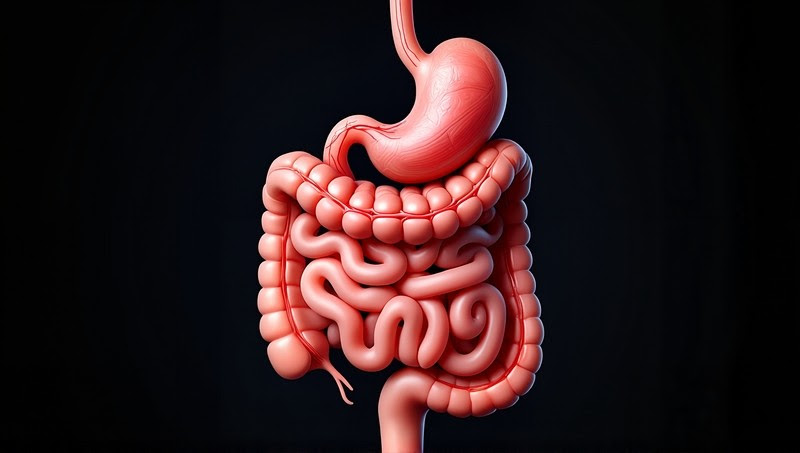- Categories :
- More
Butyrate: A Small Molecule with Big Benefits

What Is Butyrate?
Butyrate is a small molecule with big benefits and simple lifestyle choices can result in big health benefits for you. Butyrate is a short-chain fatty acid—a tiny type of fat made in the large intestine by specific gut bacteria as they break down dietary fiber. Along with acetate and propionate, it’s one of the main “postbiotics,” the helpful substances our gut microbes create after we feed them the right foods. As you will see, small postbiotics, like butyrate, offer big benefits towards good health.
How It’s Made
When we eat foods rich in fiber such as beans, oats, leafy greens, nuts, and resistant starches like green banana, jicama, and cooked-and-cooled-potatoes, much of that fiber passes through the small intestine undigested. When it reaches the colon, friendly bacteria ferment the fiber, releasing butyrate as a by-product. Some of the best-known butyrate makers include Faecalibacterium prausnitzii and Roseburia species.
The Big Benefits that Matter
Butyrate is more than just a fuel source—it plays many roles that keep us healthy:
- Power for Your Gut Lining
Cells that line the colon use butyrate as their main energy source. A steady supply helps those cells stay strong and healthy. - Stronger Gut Barrier
Butyrate supports a tight, protective lining in the intestine, helping prevent “leaky gut,” where unwanted particles slip into the bloodstream. - Natural Inflammation Control
It helps calm overactive immune responses, which can lower the risk of chronic inflammation in the digestive tract and beyond. - Metabolic Support
Research links butyrate to improved blood-sugar control and better weight regulation, at least in part by influencing hormones involved in hunger and energy use. - Cancer Protection
By supporting healthy cell turnover and turning off certain harmful genes, butyrate may help reduce the risk of colon cancer.
Meet Akkermansia: Butyrate’s Helpful Neighbor
Akkermansia muciniphila is another important gut microbe with a special relationship to butyrate. While Akkermansia doesn’t make much butyrate itself, it breaks down the mucus layer that lines the gut, releasing nutrients that other bacteria can use. Those nutrients become food for butyrate-producing bacteria [Faecalibacterium prausnitzii and Roseburia species], helping them create more of this valuable compound. Akkermansia is also linked to a thicker mucus layer and a stronger intestinal barrier—benefits that complement the work of butyrate. Here’s a link for more about Akkermansia.
How to Support Butyrate Production
You don’t need supplements to boost butyrate. Focus on everyday habits:
- Eat a Variety of Fibers: Beans, lentils, whole grains, seeds, berries, and vegetables all supply the complex carbs gut bacteria love.
- Include Resistant Starch: Foods like cooked-the-cooled potatoes, jicama, and green bananas are especially good at feeding butyrate-producing microbes.
- Limit Ultra-Processed Foods: Diets high in refined sugar and low in fiber can starve the beneficial bacteria that make butyrate.
- Consider Fermented Foods: Yogurt, kefir, and fermented vegetables can help maintain a diverse gut community.
- If attempting a carnivore diet, be sure to add fiber! Without fiber, Akkermansia decreases, gut mucus layer is destroyed, and butyrate production stops or is dramatically reduced, leading to a host of issues.
The Bottom Line
Butyrate might be small, but its impact is huge. By nourishing the cells of the colon, strengthening the gut barrier, and calming inflammation, you can reap the big benefits of butyrate, supporting digestive health and overall well-being. Feeding your gut bacteria plenty of fiber—and encouraging friendly microbes like Akkermansia—is a simple, natural way to help your body produce this powerful compound. Talk to your provider to address your issues and ensure butyrate production is maximized.
Follow your gut. Focus on Everyday Habits. Be Well.
References
Karim MR et al. (2024). Butyrate’s microbial synthesis and health effects. Archives of Microbiology.
Effendi RMRA et al. (2022). Akkermansia muciniphila and gut health. Frontiers in Immunology.
Van-Wehle T & Vital M. (2024). Dietary fiber and butyrate production. npj Biofilms and Microbiomes.
Silva YP et al. (2020). Short-chain fatty acids and metabolic health. Frontiers in Endocrinology.
Mo C et al. (2024). Akkermansia and intestinal barrier support. Gut Pathogens.




![Foods With The Most Microplastics [and what to do instead] Foods With The Most Microplastics [and what to do instead]](/images/blgs/398/artphotos/14698/200x150/031unnamed_9.jpg)












